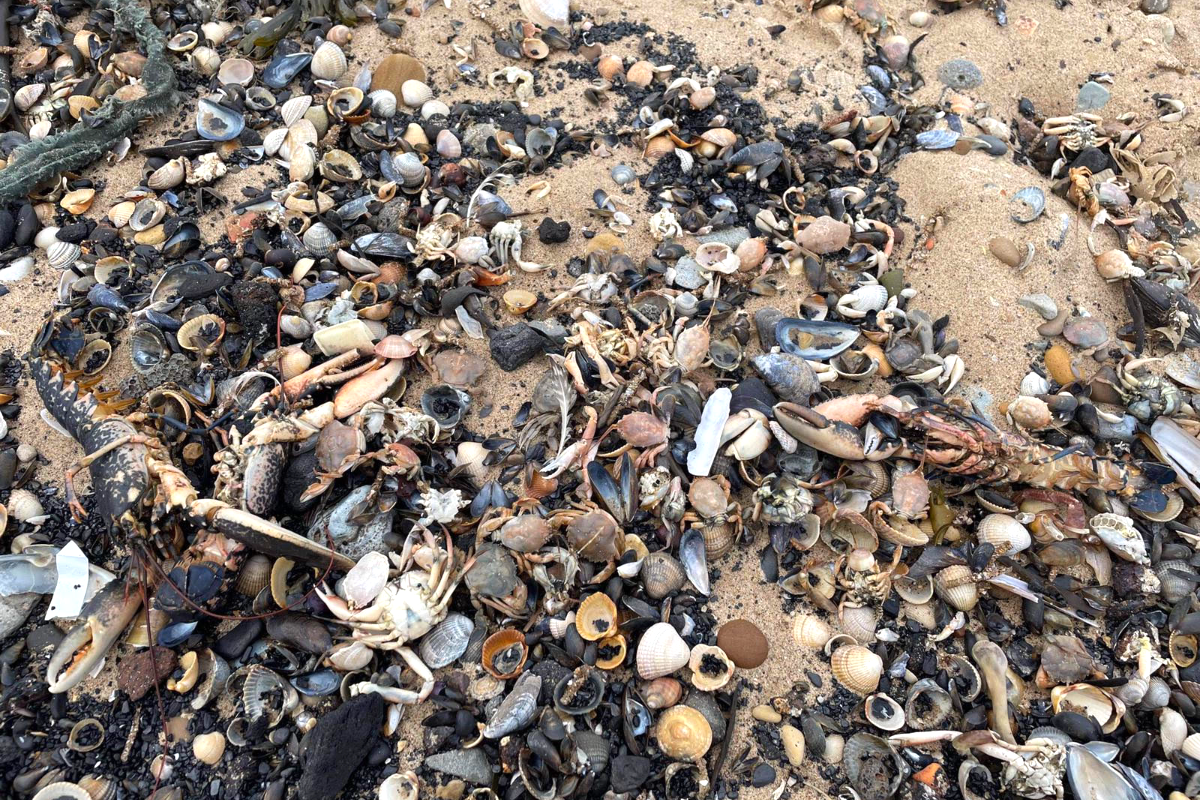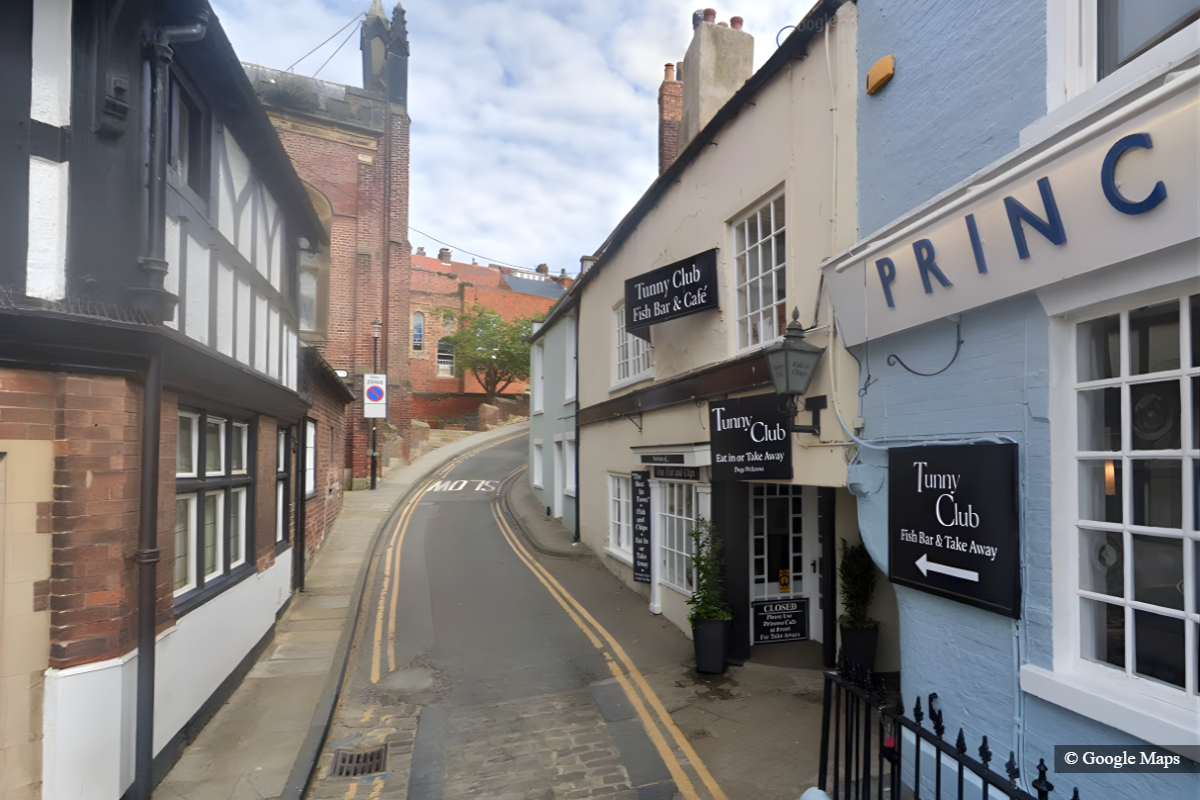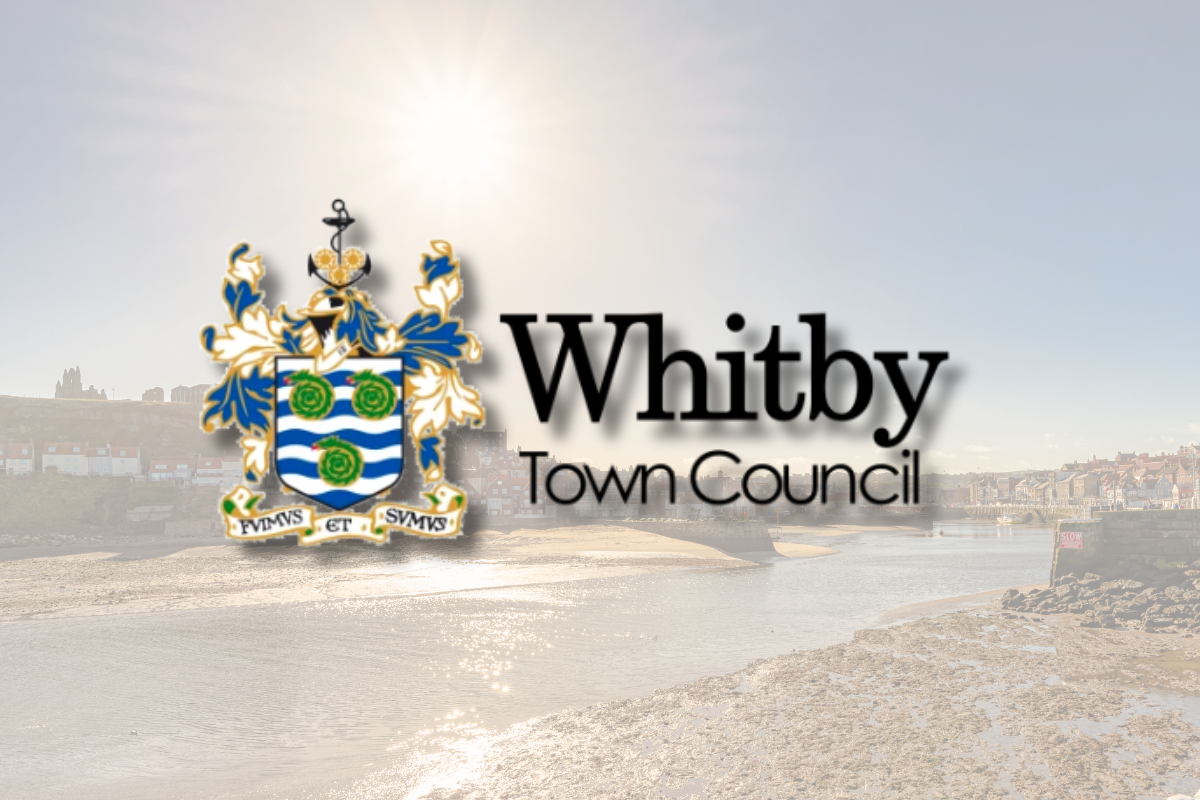
A report by councillors into an incident which saw a mass wash-up of dead crustaceans on North-East beaches has criticised a lack of co-operation from Government agencies.
Councillor Philip Thompson, who chaired the working group behind the report, said the significant die-offs first discovered in Redcar and Saltburn in October 2021 had been “unprecedented in its magnitude”.
He said “considerable challenges” had been faced in its investigations, including inadequate engagement and co-operation from public bodies, most notably the Department for Environment, Food and Rural Affairs (Defra).
Cllr Thompson, who represents Saltburn on Redcar and Cleveland Council, said this had hindered meaningful dialogue and claimed replies received had often been “disrespectful” to the local authority efforts.
When contacted for comment, Defra did not respond directly to the criticism, but said it continued to monitor marine life around the coast and was open to further engagement with researchers and the academic community.
The cross-working group, which included councillors from Redcar and Cleveland and Hartlepool councils, as well representatives from Middlesbrough, Stockton and later North Yorkshire County Council, was formed in November 2022 in response to a series of motions tabled across the area by elected members dissatisfied with the Government-led response, and aimed to further explore circumstances surrounding the shellfish deaths.
Its final report calls for a greater awareness of issues impacting fishing and coastal communities and says the impact of the die-offs was “catastrophic” with most areas along the coast in both directions from the mouth of the Tees experiencing a subsequent fall in catches and the livelihoods of many people being permanently altered.
It said response mechanisms needed to be more robust and timelier to address potential similar incidents in the future.
Recommendations include increased water sampling and testing frequency, improved mapping of maritime and freshwater environments, addressing existing gaps in the management of coastal areas and investments in lobster hatcheries, such as those in Whitby and Bridlington, to support restocking efforts and promote recovery.
The working group formally requested last year in a letter from Cllr Thompson to Defra Minister of State Daniel Zeichner that a public inquiry be held, but he responded in October stating it was unlikely to provide substantial new insights, given the passage of time since the original incident.
Cllr Thompson replied describing how
“the workings of the apolitical local authority group have been thwarted at practically every turn in attempts to consult with and engage in considered discussion of the incident, its implications and the ramifications that result”.
He also wrote:
“The rejection of such a public enquiry is regretted and the passage of time argument, whilst understood, is a further reflection of the apparent inertia that seems to be symptomatic of the behemoth structure tasked with management of our maritime estate.”
A multi-agency investigation previously carried out, from which findings were published in May 2022, originally suggested that harmful algal blooms present in the area at the time had played a significant role in the deaths, but no single causative factor was ever identified.
Chemical contamination and aquatic animal disease were also considered with no conclusive evidence identified for each.
Concerns were highlighted from some witnesses in the report about dredging on the River Tees, both maintenance and capital dredging, dislodging a toxic mix of chemicals in sediment, including pyridine associated with historic industry in the area, which was then dumped at sea.
Affected crustaceans – those that were still alive – were seen to display unusual “twitching” and lethargic behaviours.
However it was previously reported pyridine levels in the area had been no higher than in some other, unaffected areas and a subsequent independent scientific review of the multi-agency findings said there was a less than 1% probability that capital dredging had caused the unusual crustacean mortality and less than 10% in respect of more common maintenance dredging.
The report found there may have been an impact from a number of demolitions on reclaimed and contaminated land to make way for regeneration works potentially releasing contaminants into the Tees, but went no further in its hypothesis.
Cllr Thomson said historic pollutants and their impact on marine environments should be investigated in a more detailed and transparent manner.
He also said dredging licences issued to carry out dredging activities were only monitored periodically and there was a need for stricter regulations and more comprehensive sediment sampling.
Cllr Thomson described a “ripple effect” with the working group finding evidence of only a limited recovery of some species like brown crab, along with dramatic declines in some local lobster populations.
However the North Eastern Inshore Fisheries Conservation Authority, which gave evidence, said potential contributing factors could include climate change leading to changes in sea temperature and changes in weather patterns.
Those who provided in-person evidence to the inquiry included the North East Fishing Collective, the North Eastern Inshore Fisheries Conservation Authority, Teesports operator PD Ports, Hartlepool-based ship breaker Able UK, the Whitby Lobster Hatchery, academics from Durham, Manchester and Newcastle Universities and a marine biologist and oceanographer.
The North East Fishing Collective, in its evidence, said none of the public bodies involved in the investigations “appear to have either the will or funding to find the true cause of the die-off episodes and fishers were told to find their own evidence”.
It said:
“North-East fishers, the public and marine environment deserve better from the Government.
“The industry maintains that compensation has never been an issue, merely a desire to see the health of the marine ecosystem return.”
Defra declined an invitation to attend meetings to give evidence, while there was no direct representation from the Marine Management Organisation and another Government agency the Centre for Environment, Fisheries and Aquaculture Science, although correspondence was shared.
Others who were invited and either did not respond or declined were Tees Valley Mayor Ben Houchen, an invited representative from Teesworks and former Conservative MPs Sir Simon Clarke (Middlesbrough South and East Cleveland) and Jacob Young (Redcar).
The report said the mass mortality event, which also affected other locations as far north as Northumberland and south to Scarborough, was a “significant and distressing incident” that had a profound impact on local communities, the fishing industry, and the marine ecosystem.
Meanwhile, there had also been sporadic, smaller die-off events and wash ups reported in both 2022 and 2023.
It said the objectives had been to investigate the causes, assess the impact on the local environment and economy, recommend actions to improve management of future occurrences, and support recovery efforts.
A foreword to the report said:
“We hope that this report serves as a catalyst for positive change, fostering greater awareness and action to protect our marine environment and support the communities that depend on it.
“Together, we can ensure that the lessons learned from this event lead to a more resilient and sustainable future for our coastal regions.”
It also said:
“Having sought to engage with relevant authorities, agencies and directly interested groups and individuals it has become evident that a wide variety of views and opinions are held in respect of the crustacean die off.
“The original algal bloom has been discounted and a novel pathogen remains on the table as the only outcome of learned deliberation.
“Although unable to add to a definitive conclusion, the working group has established that there are a significant variety of factors working independently, but also collectively, which do influence water quality, be it sea or river.
“Although human activity appears to be regulated and the natural environment researched and understood, there remains much to better manage.”
Referring to the responses of “key partners”, the report said:
“The vast number of relevant and interconnected organisations were not immediately identifiable and it only became apparent in the course of exploration how complex the maritime administration system is.
“Not all organisations were responsive to enquiry.
“As local authorities conducting an inquiry into matters of local and national significance it was both a surprise and a disappointment that the status of…working group authorities did not receive an entirely proactive response that might be expected of all public bodies.”
The report said current maritime governance arrangements were “incredibly complex” and said the interaction between responsible organisations did not appear to be effective.
It suggested a
”restructuring of the overall maritime management to reduce organisation numbers, better clarify remits, welcome public scrutiny and operate in a robust and timely manner is a requirement in need of prompt action”.
Last year several Labour Tees Valley MPs also wrote to Minister of State Mr Zeichner claiming confidence in the investigations undertaken remained “very low” in the region and requesting that the issue be re-examined and scientific investigation re-opened, while also calling for financial assistance for affected fishermen and a “proactive programme of ecological restoration”.
A Defra spokeswoman said:
“We have completed extensive investigations into the cause of crustacean mortality in the North-East, including setting up an independent expert panel to review findings and offer further analysis.
“We are continuing to closely monitor marine life around our coast.”
It said all of its research was fully open and accessible with samples taken by Cefas and the Environment Agency made available to researchers, while it was also open to further engagement.
Timeline
- October 2021 – Large numbers of dead and dying crustaceans wash up overnight on beaches
- January 2022 – A marine pollution consultant commissioned by the Whitby Commercial Fishing Association reviews data made available via FOI requests to Defra-related agencies relating to chemical analysis of sea water, crab flesh and sediment. His report states high concentrations of pyridine found in flesh in the die-off zone was the most likely cause of death
- Research is also undertaken by Newcastle University on behalf of the North East Fishing Collective and shared with an MPs select committee which highlights the same behaviours in lab-based conditions when crustaceans are exposed to pyridine as reported by members of the public who came across the die-offs. It also details “violent”, “shocking” convulsions and says the die-off involved the removal of an entire section of the food chain
- May 2022 – The results of the multi-agency investigation are published by Defra and concludes that the presence of harmful algal blooms in the area at the time of the event was significant, but no single causative factor is identified
- October 2022 – The environment, food and rural affairs select committee holds a hearing attended by expert witnesses and later recommends that the Government’s chief scientific officer should appoint an independent, scientific panel to review all the related evidence
- December 2022 – The panel is established and later fails to identify a single, clear cause for the mortality event, suggesting that a pathogen new to UK waters – such as a parasite – was the most likely explanation given the geographical spread and sustained time period, the unusual behaviours of affected crabs and the fact that mortality was apparent in only a few species. It rules out pyridine and other unnatural toxins owing to the lack of sufficient toxic material identified in samples assessed, the wide geographical spread and long duration of the event
- The select committee requests the Centre for Environment, Fisheries and Aquaculture Science (Cefas) – an executive agency of Defra – undertake further studies in regard to the novel pathogen theory, while monitoring of the affected areas should continue and steps taken to support the rebuilding of local potting and fishing communities
- February 2023 – The Secretary of State responds to the committee to advise that no further analysis will be undertaken by the Government and no further financial support for fishing communities is planned
- November 2023 – Cefas publishes a non-peer reviewed paper detailing the development of a new, validated method developed by its scientists for determination of pyridine in crustacean tissues, which was used to re-analyse stored samples taken at the time of the die-offs. A report concludes that it is “very unlikely that pyridine, as a single entity, was the cause of the crab and lobster mortalities”.
- July 2024 – MPs including Redcar MP Anna Turley and Middlesbrough Andy McDonald submit a joint letter to Defra Minister of State Daniel Zeichner calling for the Government to revisit matters
- October 2024 – Mr Zeichner says he agrees with the view of the Government’s chief scientific advisor that a public inquiry is unlikely to provide substantial new insights, given time elapsed since the original incident.




 Scarborough and Whitby MP Presses for Burniston Fracking Decision to be Delayed
Scarborough and Whitby MP Presses for Burniston Fracking Decision to be Delayed
 Pickering and Filey MP Criticises Government for ‘Unfair’ Rural Funding Settlement
Pickering and Filey MP Criticises Government for ‘Unfair’ Rural Funding Settlement
 East Riding to Introduce Weekly Food Waste Collections Amid Long-Term Funding Fears
East Riding to Introduce Weekly Food Waste Collections Amid Long-Term Funding Fears
 Eastfield Boxing Club Film to Get Scarborough Premiere
Eastfield Boxing Club Film to Get Scarborough Premiere
 Scarborough Athletic Stunned By Minnows in Senior Cup
Scarborough Athletic Stunned By Minnows in Senior Cup
 Whitby Town Again Hit By Second Half Slaughter
Whitby Town Again Hit By Second Half Slaughter
 Scarborough Café and Flat Plans Opposed by Town Councillors
Scarborough Café and Flat Plans Opposed by Town Councillors
 Bridlington Town Beaten Again Despite Improved Showing
Bridlington Town Beaten Again Despite Improved Showing
 Scarborough Chip Shop's Alcohol Bid Approved Despite Concerns
Scarborough Chip Shop's Alcohol Bid Approved Despite Concerns
 East Riding Leaders Sound Alarm Over Government's 'Fairer Funding' Review
East Riding Leaders Sound Alarm Over Government's 'Fairer Funding' Review
 Precept Increase Proposed for Whitby Residents in Draft Budget
Precept Increase Proposed for Whitby Residents in Draft Budget








Comments
Add a comment